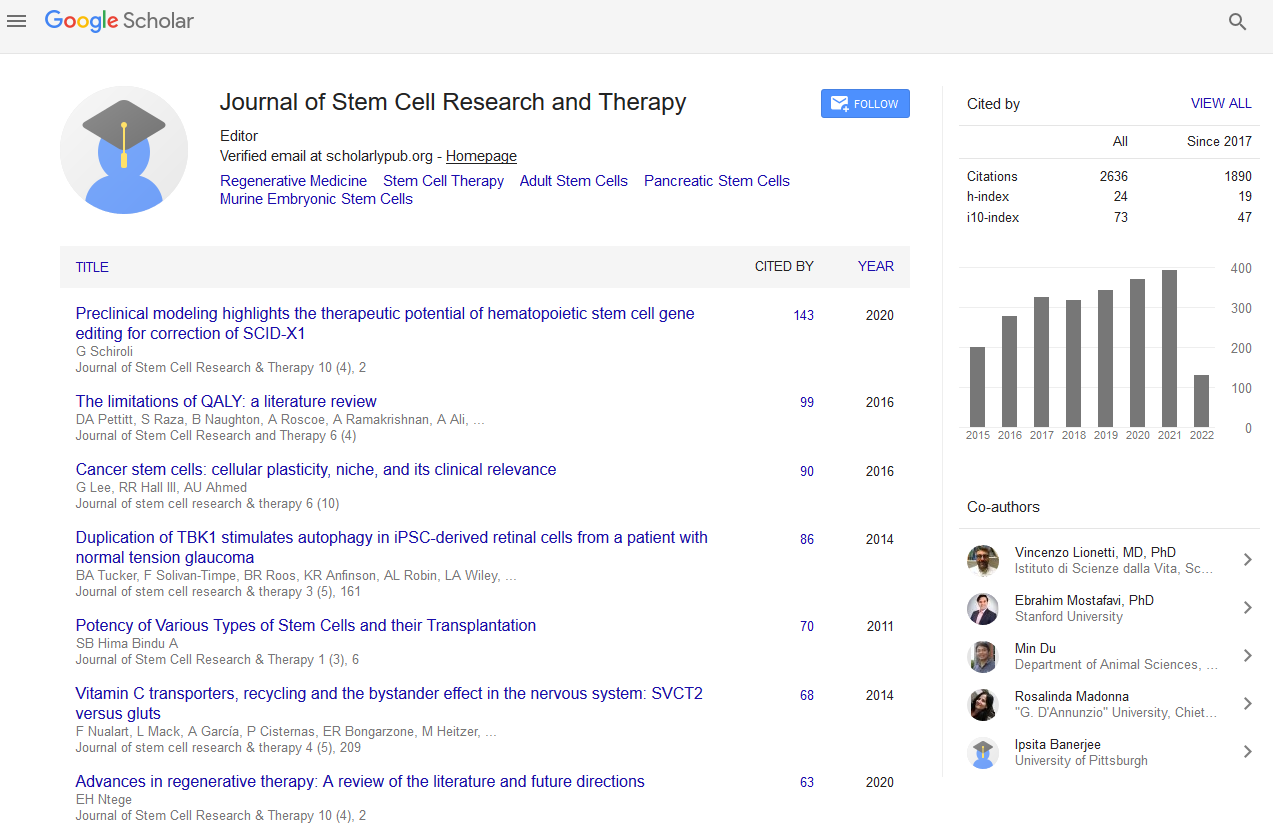Indexed In
- Open J Gate
- Genamics JournalSeek
- Academic Keys
- JournalTOCs
- China National Knowledge Infrastructure (CNKI)
- Ulrich's Periodicals Directory
- RefSeek
- Hamdard University
- EBSCO A-Z
- Directory of Abstract Indexing for Journals
- OCLC- WorldCat
- Publons
- Geneva Foundation for Medical Education and Research
- Euro Pub
- Google Scholar
Useful Links
Share This Page
Journal Flyer

Open Access Journals
- Agri and Aquaculture
- Biochemistry
- Bioinformatics & Systems Biology
- Business & Management
- Chemistry
- Clinical Sciences
- Engineering
- Food & Nutrition
- General Science
- Genetics & Molecular Biology
- Immunology & Microbiology
- Medical Sciences
- Neuroscience & Psychology
- Nursing & Health Care
- Pharmaceutical Sciences
Abstract
Mechanisms and Developmental Roles of Promoter-proximal Pausing of RNA Polymerase II
Christine Robinson, Matthew Lowe, Amanda Schwartz and Nobuaki Kikyo
RNA polymerase II (Pol II) temporarily stops transcription after synthesizing 30-50 bases, and resumes elongation only after stimulations by various signaling molecules and developmental cues. This phenomenon, called promoterproximal pausing, is observed in 10-50% of the entire genes from Drosophila embryos to human cells. Release of paused Pol II is primarily mediated by the activated form of positive transcription elongation factor b (P-TEFb) initially sequestered in the inhibitory 7SK small nuclear ribonucleoprotein (7SK snRNP) complex. Many proteins and RNAs have been discovered and studied in detail to explain the process of the pausing and release of Pol II in relation to P-TEFb. At the functional level, promoter-proximal pausing regulates genes involved in stimulus-response and development in Drosophila. In mammalian stem cell biology, pausing is important for proliferation and signaling in embryonic stem cells and the formation of induced pluripotent stem cells. Other than this, however, little is known about the biological significance of pausing in mammalian cell differentiation. Further study on pausing mechanisms as well as its functions will contribute to the development of stem cell biology and its clinical applications.


